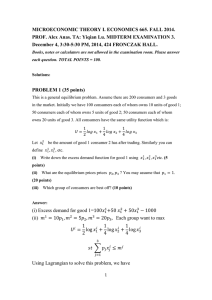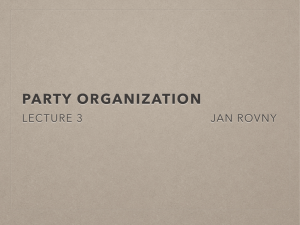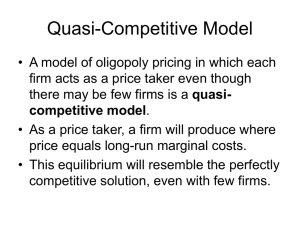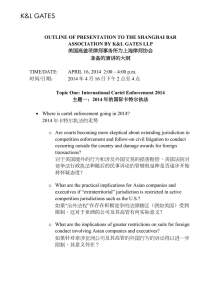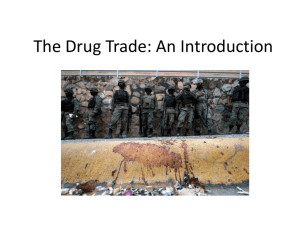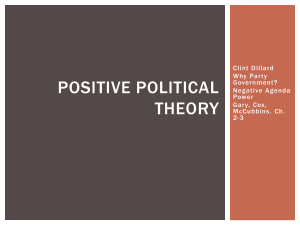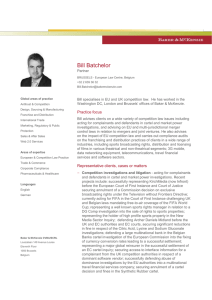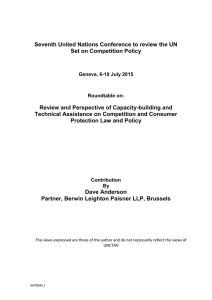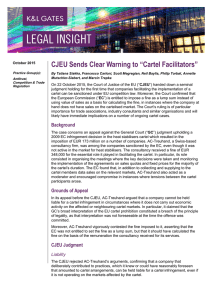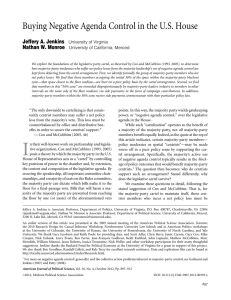Recent Cartel Developments
advertisement
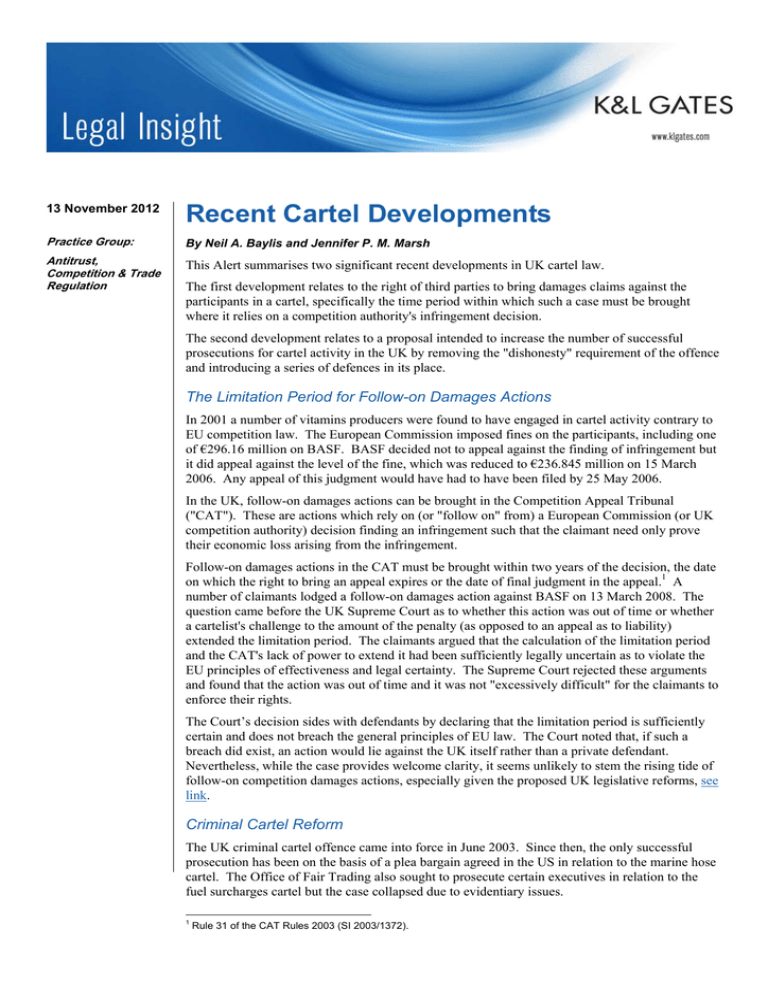
13 November 2012 Recent Cartel Developments Practice Group: By Neil A. Baylis and Jennifer P. M. Marsh Antitrust, Competition & Trade Regulation This Alert summarises two significant recent developments in UK cartel law. The first development relates to the right of third parties to bring damages claims against the participants in a cartel, specifically the time period within which such a case must be brought where it relies on a competition authority's infringement decision. The second development relates to a proposal intended to increase the number of successful prosecutions for cartel activity in the UK by removing the "dishonesty" requirement of the offence and introducing a series of defences in its place. The Limitation Period for Follow-on Damages Actions In 2001 a number of vitamins producers were found to have engaged in cartel activity contrary to EU competition law. The European Commission imposed fines on the participants, including one of €296.16 million on BASF. BASF decided not to appeal against the finding of infringement but it did appeal against the level of the fine, which was reduced to €236.845 million on 15 March 2006. Any appeal of this judgment would have had to have been filed by 25 May 2006. In the UK, follow-on damages actions can be brought in the Competition Appeal Tribunal ("CAT"). These are actions which rely on (or "follow on" from) a European Commission (or UK competition authority) decision finding an infringement such that the claimant need only prove their economic loss arising from the infringement. Follow-on damages actions in the CAT must be brought within two years of the decision, the date on which the right to bring an appeal expires or the date of final judgment in the appeal.1 A number of claimants lodged a follow-on damages action against BASF on 13 March 2008. The question came before the UK Supreme Court as to whether this action was out of time or whether a cartelist's challenge to the amount of the penalty (as opposed to an appeal as to liability) extended the limitation period. The claimants argued that the calculation of the limitation period and the CAT's lack of power to extend it had been sufficiently legally uncertain as to violate the EU principles of effectiveness and legal certainty. The Supreme Court rejected these arguments and found that the action was out of time and it was not "excessively difficult" for the claimants to enforce their rights. The Court’s decision sides with defendants by declaring that the limitation period is sufficiently certain and does not breach the general principles of EU law. The Court noted that, if such a breach did exist, an action would lie against the UK itself rather than a private defendant. Nevertheless, while the case provides welcome clarity, it seems unlikely to stem the rising tide of follow-on competition damages actions, especially given the proposed UK legislative reforms, see link. Criminal Cartel Reform The UK criminal cartel offence came into force in June 2003. Since then, the only successful prosecution has been on the basis of a plea bargain agreed in the US in relation to the marine hose cartel. The Office of Fair Trading also sought to prosecute certain executives in relation to the fuel surcharges cartel but the case collapsed due to evidentiary issues. 1 Rule 31 of the CAT Rules 2003 (SI 2003/1372). Recent Cartel Developments The OFT has argued that removal of the requirement that individuals are acting "dishonestly" in engaging in cartel behaviour would enable it to bring more successful prosecutions, which are intended as an effective deterrent against cartel behaviour generally. On 23 May 2012 the Enterprise and Regulatory Reform Bill, removing the dishonesty requirement, had its first reading in the House of Commons. In October, the government published amendments to the cartel offence section of the Bill which created certain defences to the offence, as follows: a defence that the implicated individual did not intend the nature of the arrangements to be concealed from either customers or from the UK competition authorities; a defence that the implicated individual can show that he or she took reasonable steps to ensure that the arrangements would be disclosed to legal advisers for their advice. The Bill also now specifies that guidance will be published setting out the principles to be applied in determining whether proceedings will be brought in particular cases. The concept of “dishonesty” was very familiar to criminal law and although the OFT considered that it created a significant obstacle to juries returning guilty verdicts,2 it was nonetheless understood by the courts. The new defences are novel and create a number of uncertainties. For example, how can it be demonstrated that an individual did not intend a commercially sensitive arrangement to be concealed? What if the legal advice is opposed to the arrangement? The Bill is scheduled to have its second reading in the House of Lords on 14 November 2012. Further debate and possible amendments would appear likely. Authors: Neil A. Baylis Jennifer P.M. Marsh neil.baylis@klgates.com +44.(0)20.7360.8140 jennifer.marsh@klgates.com +44.(0)20.7360.8223 2 Although, as noted above, the "dishonesty" requirement has not yet been the cause of a prosecution case failing. 2
